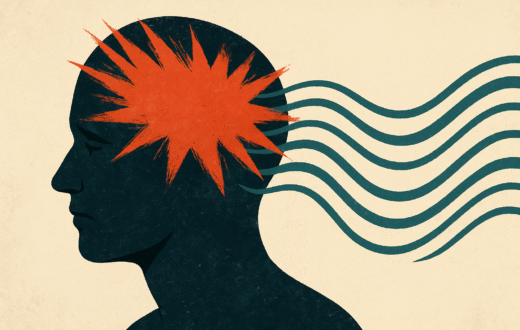Why You Can’t Leave: 3 Clues You’re Trauma-Bonded to a Narcissist

A trauma bond is a psychological trap that can keep someone tied to a toxic relationship — even when they know it’s hurting them. If you’ve ever felt emotionally stuck with someone who mistreats you, despite knowing you deserve better, you might be experiencing a trauma bond. Here are three key signs that could indicate you’re in one, especially when dealing with a narcissistic partner.
1. A Relationship Marked by Emotional Extremes
One major red flag is the presence of intense highs and crushing lows. The relationship feels like a rollercoaster — moments of affection and connection are followed by periods of conflict, criticism, or coldness. Over time, the negative patterns start to dominate, but the occasional moments of kindness keep you hopeful.
For instance, imagine attending an event with your partner where they ignore you, criticize you publicly, or refuse to engage with you. The next day, they suddenly act loving and generous, offering gifts or kind words to « make up for it. » You find yourself rationalizing the bad behavior just because the good moments still exist. This cycle — known as intermittent reinforcement — is a classic dynamic in trauma bonds.
2. Emotional Withdrawal Used as Punishment
Another common sign is emotional abandonment. When you try to raise concerns or express your feelings, your partner may become cold, dismissive, or completely unresponsive. This silent treatment can leave you feeling invisible, worthless, or desperate to make things right — even if you weren’t in the wrong.
You might find yourself apologizing just to end the emotional distance, even if your concerns were valid. Over time, this pattern reinforces the belief that your needs aren’t important — or that love must be earned by staying quiet or compliant.
This kind of dynamic can be especially painful if it echoes a childhood experience where affection was conditional. If, as a child, you were only shown love when you behaved a certain way or silenced your discomfort, you may be more vulnerable to this kind of manipulation in adult relationships.
3. You’ve Invested So Much, You Feel You Can’t Leave
A trauma bond often grows stronger when you’ve sacrificed heavily for the relationship. Whether it’s giving up a career, moving across the country, or constantly compromising your own needs, the emotional and practical investment can feel too big to walk away from — even when you’re deeply unhappy.
What’s worse, the effort is usually one-sided. Your partner may guilt you into staying, play the victim, or downplay your sacrifices, all while offering little or no effort in return.
Take Ben, for example. He uproots his life and career to be with a partner who calls him “the one.” Months later, he learns she’s been unfaithful — but instead of leaving, he clings to the idea that leaving would mean failure. He stays, hoping things will improve, even as the relationship deteriorates further.
Breaking the Cycle
Recognizing these signs is the first step toward breaking free. Trauma bonds can distort your reality and keep you blaming yourself, while your partner’s harmful behavior goes unchecked. If your relationship is marked by emotional chaos, abandonment, and unreciprocated effort, it may be time to seek support and start reclaiming your sense of self.
For those who want to understand more about narcissistic abuse and how to regain control, exploring tools like emotional intelligence and setting firm boundaries can be life-changing.





